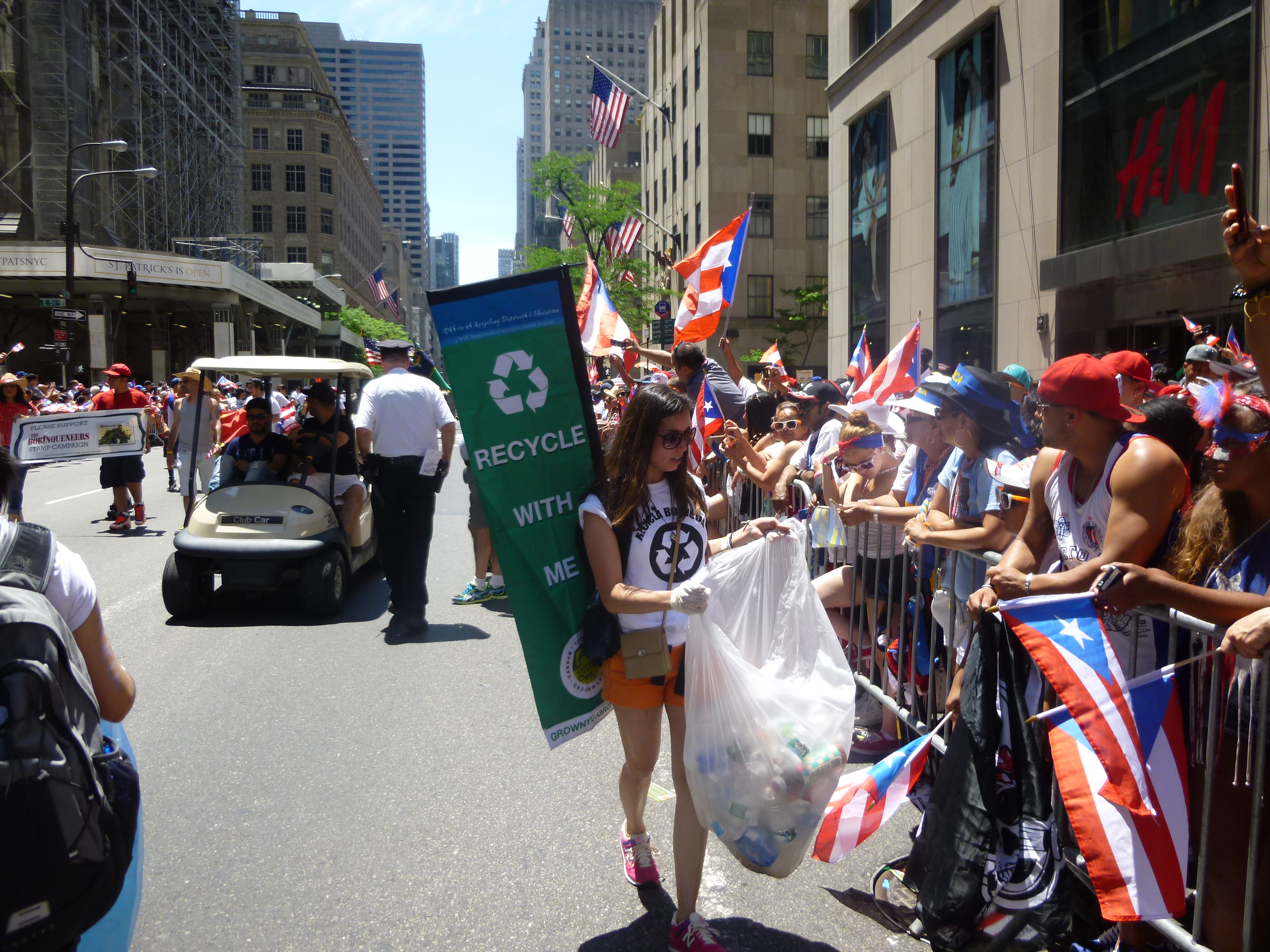Eleven Recycling Champions schools participated in this year’s Big Lift: Zero Waste contest. The schools blew us away with their uncontaminated collections that definitively showed what studies have told us: 90% of school waste can be diverted from landfills!
The Big Lift challenged schools to reduce waste and recycle as much as possible during one school day, aiming for zero waste to landfills from classrooms, offices, and the cafeteria. The first place organics collection school, PS 130M, achieved an astounding 93.60% diversion rate and the first place non-organics school, PS 221Q, achieved a 57.78% diversion rate. The average diversion of all participating schools in this year’s contest was 58.88%, exceeding the 50% diversion rate for schools targeted in the Mayor’s Zero Waste Schools program.
In preparation for the Big Lift, participating schools planned publicity campaigns that included announcements, classroom visits, pledge walls, posters, and even video “commercials” shown in every class. These impressive efforts increased student and teacher awareness about recycling, reinforcing classroom and cafeteria recycling practices put in place over the course of the school year.
Meet the winners and their tips for school recycling success:

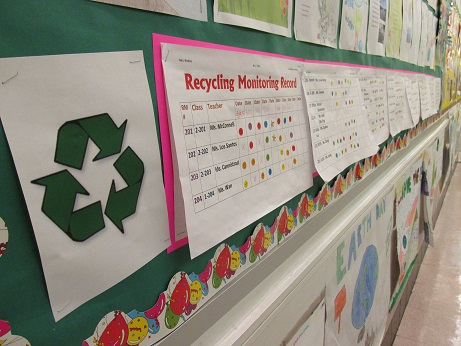
PS 130 Manhattan, 1st place organics school—93.60% waste diversion
Best Practice: Principal involvement and classroom paper monitoring charts
Mr. Fong is a first year principal at PS 130 Hernando DeSoto in Manhattan. With all of the other demands of his role, he made recycling a priority. Mr. Fong’s hands-on involvement in the cafeteria as students mastered the new organics sorting routine, demonstrated to all in the school the high importance he places on school wide recycling.
Sustainability Coordinator, Wenmin Nicklas, worked with the Green Team to create a system to monitor and display the results of classroom paper recycling. Once a week, each class received a rating based on how well they are separating paper in their classroom. The weekly rating chart is displayed in the hallway by the main office for all to see, prompting students to look at their class’s rating and strive to achieve “smiley stickers” on each Green Team check in.
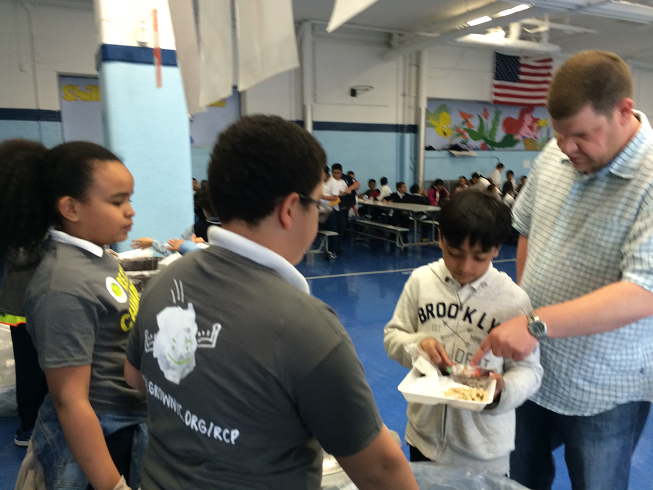
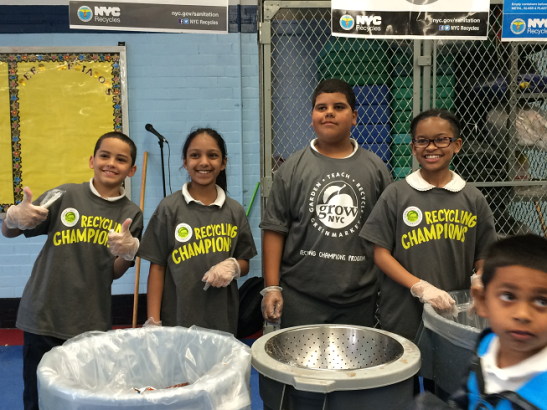
PS 90 Queens, 2nd place organics school—87.60% waste diversion
Best Practices: School wide involvement and recycling monitors
At PS 90 Horace Mann recycling education extended beyond the students and staff to include a letter sent home to parents. Custodial staff were key in implementing successful cafeteria recycling, volunteering to monitor the stations until student monitors were assigned. Currently, PS 90 has a monitor system where students from their grades volunteer during lunch hour.

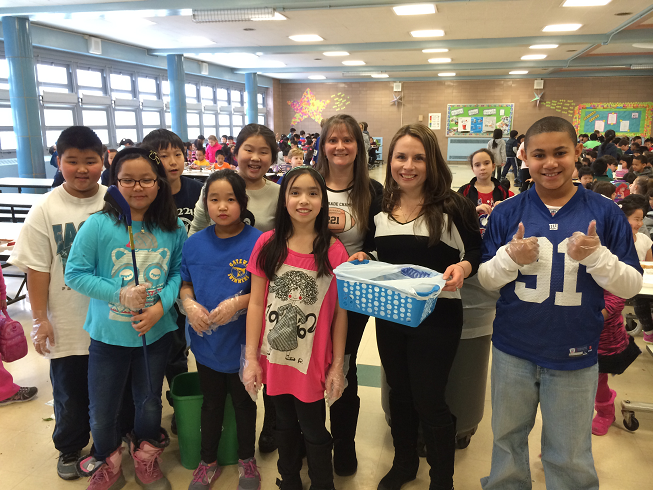
PS 221 Queens, 1st place non-organics school—57.78% waste diversion
Best Practice: Presorting at tables
For NYC's youngest students, sorting recyclables can be a balancing act - many are barely tall enough to see into the recycling bins! Sustainability Coordinators Danielle Rothenberg and Laura Arnold at P.S. 221 noticed that students understood which items were recyclable but had trouble placing them in the bin, so they created a system where students presort all plastic items. Each table has a blue, plastic basket and is assigned a student who transfers the plastic items in the basket to the recycling bins. Presorting has transformed the cafeteria by allowing students to focus just on emptying liquids from their drink cartons, recycling them, and throwing out the tray.
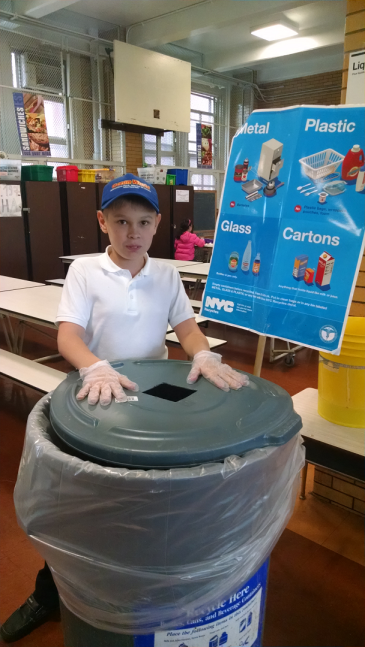
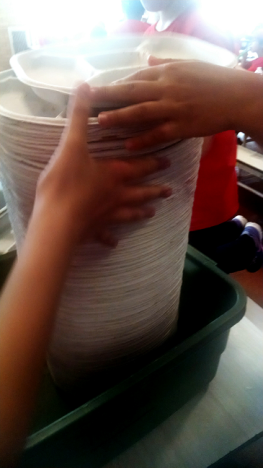
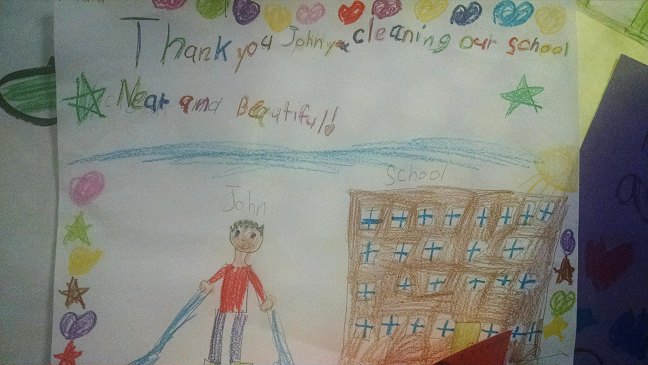
PS 197 Brooklyn, 2nd place non organics school—42.59% waste diversion
Best Practices: Tackling changes one at a time and showing appreciation
Sustainability Coordinator, Phil Richford, has two strategies for success: implement big changes one at a time and continually thanking everyone involved in making recycling a success. Phil implemented tray stacking in the cafeteria as a first step to reducing waste and increasing sorting. Once students were in the habit of tray stacking, the Green Team focused on making sure students separated recyclables from their landfill waste. It only took a few weeks before each habit was a part of the everyday routine. Now that the habits have been formed, students easily adapt to slight changes in the routine such as stacking the new, round, compostable plates introduced at the end of the school year.
Knowing that none of the school’s recycling success would be possible without the custodial staff, Phil always expresses his gratitude and encourages others to do so. Students made thank you posters for the custodians which are proudly displayed next to school’s Big Lift winner announcement. In turn, seeing the importance of recycling to the school community, the custodians work patiently with Phil to problem solve any issues that arise.
We are proud of what these schools accomplished on the day of the Big Lift: Zero Waste contest. RCP worked with 90 schools in the 2014-2015 school year, helping them to implement lasting recycling programs. Thank you to all of our schools for your efforts to recycle, for making NYC a greener place for all, and for a great year of partnership!






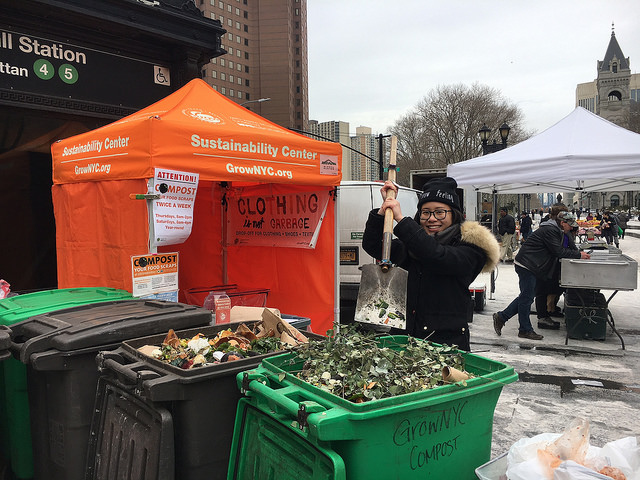
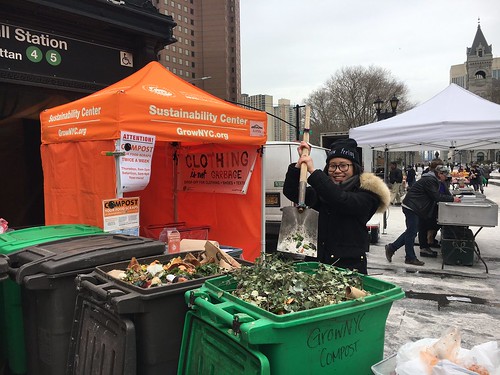


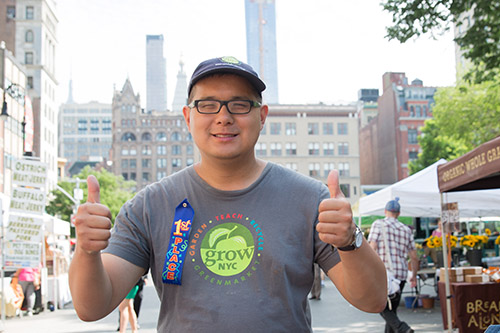
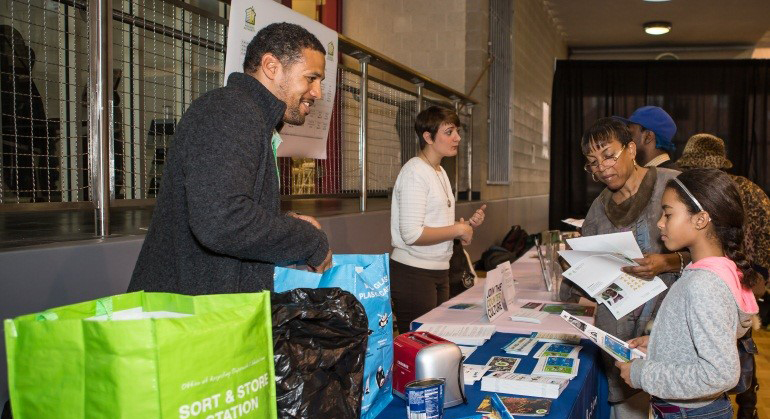
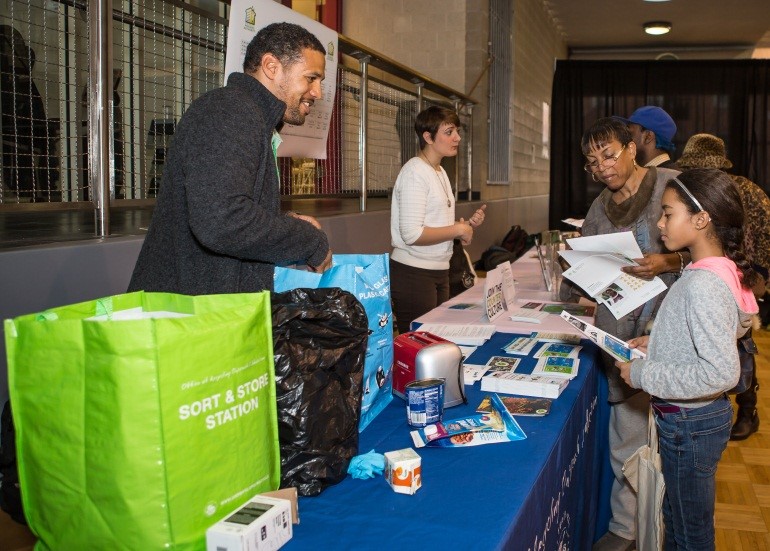























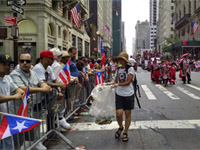
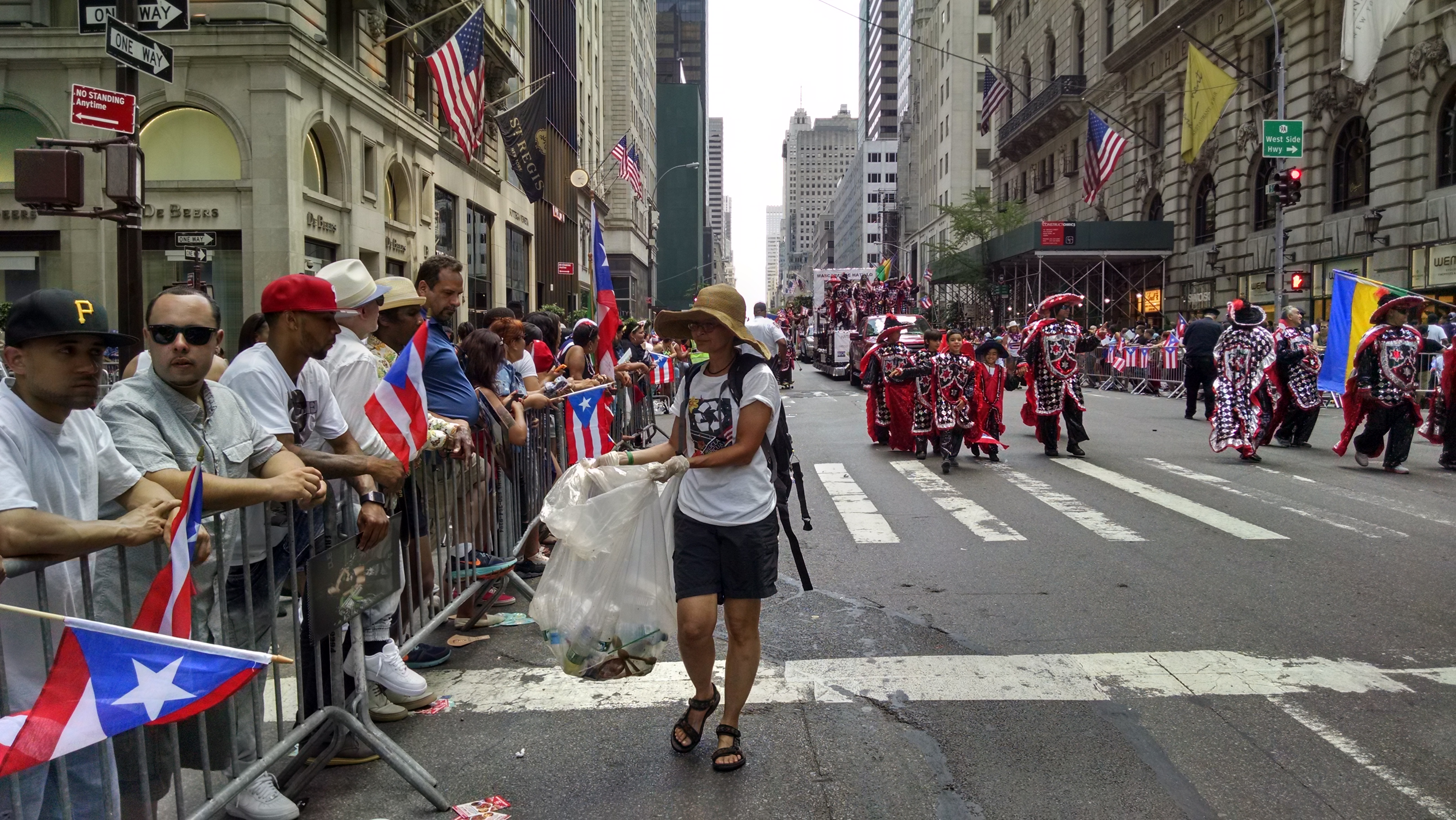
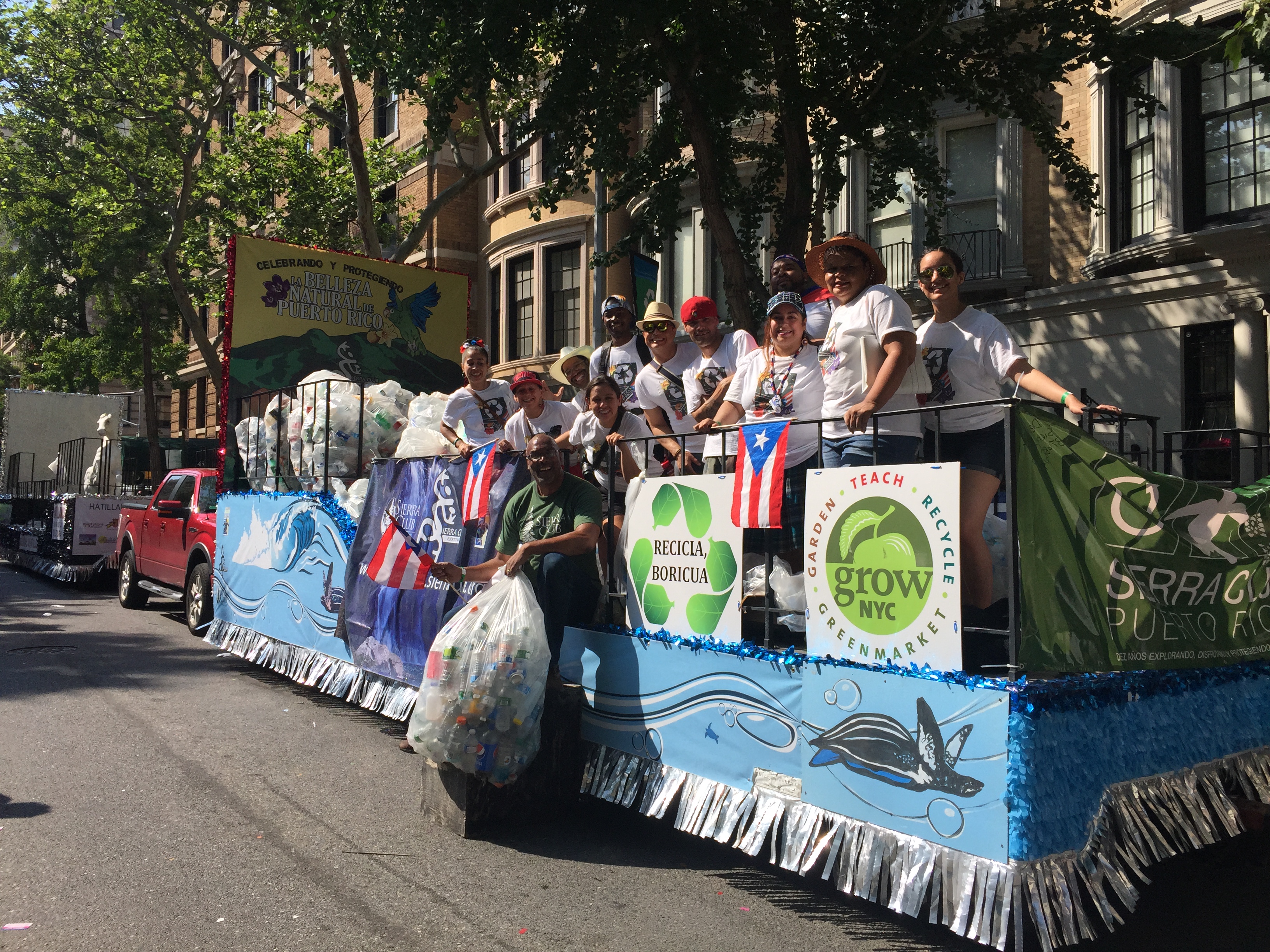
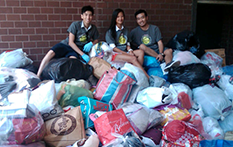
 With Halloween 2014 coming on the heels of the
With Halloween 2014 coming on the heels of the 